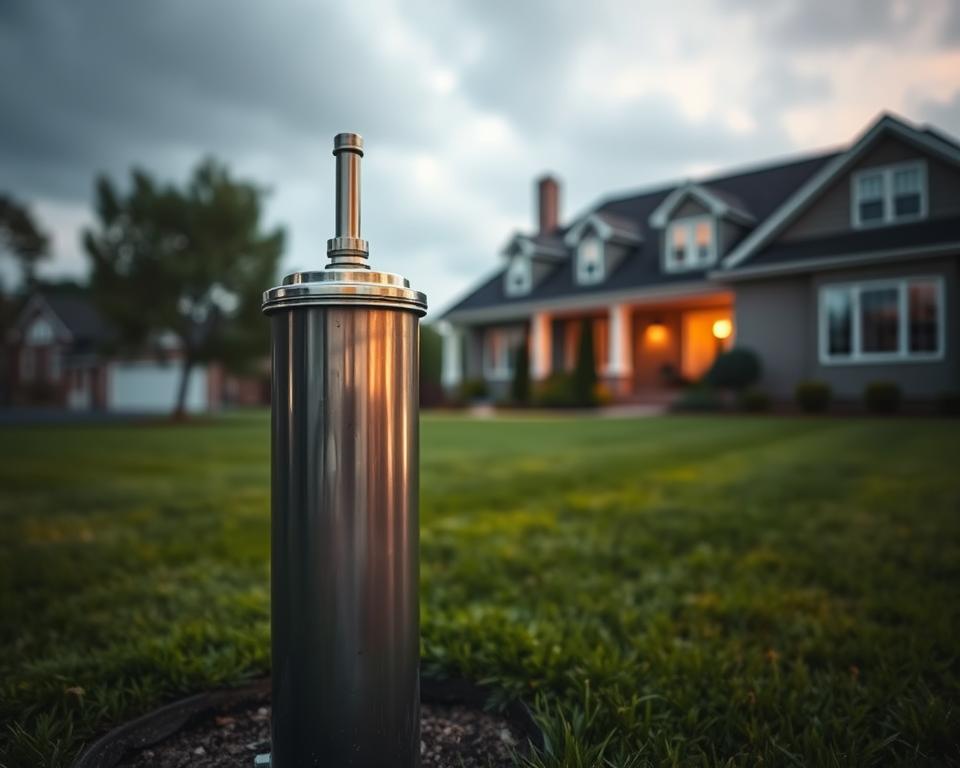Septic System Cleaning
Ever wondered regarding the consequences of overlooking septic system upkeep? When you depend on these systems for waste management, foregoing regular care can cause substantial bills. It also introduces risks to both well‑being and the environment. Pumping your septic system isn’t just a quick task; it’s essential for making sure your home functions reliably. By regularly pumping your septic tank, you prevent sludge build‑up and prolong the longevity of your setup. This forward‑looking strategy lets you avoid any undesirable situations. Learn the value of septic tank care and the process entailed with septic tank pumping services.
Major Findings
- Regular septic system servicing is crucial for avoiding expensive restorations.
- Ignoring upkeep can lead to health risks for your loved ones.
- Understanding your septic system aids in effective stewardship.
- Indicators of a malfunctioning septic system should be recognized quickly.
- Expert contractors can help in keeping excellent tank health.
Understanding Your Septic System
A septic system is an effective on‑property method for treating wastewater. It mainly comprises two components: the septic tank and the drainfield. Both are integral for providing safe treatment and safeguarding the ecosystem.
The septic tank gathers wastewater from your home. In it, solids settle to the floor, and effluent drift to the surface. Naturally occurring bacteria within the tank break down the organics, making the effluent simpler to handle. This partially treated wastewater then flows to the absorption area for extra cleanup by the soil, concluding the treatment.
It’s important for homeowners to grasp the mechanics of their septic system. Knowing how the septic tank and field function in tandem can foster enhanced system care. This understanding encourages effective maintenance methods, helping guarantee the system’s robustness.

Significance of Routine Septic System Cleaning
Routine cleaning of the septic system is essential for domestic and ecological health. If ignored, unprocessed wastewater can leak into your yard. This overflow can cause subsurface water contamination, creating health hazards. By servicing the septic system clean, you safeguard your household and the community.
It’s recommended to service the septic system every three to five years, depending on how much you load it. Such care is not just eco‑friendly; it avoids costly fixes. A septic system that’s properly cared for functions more reliably, delivering a healthier household and a cleaner natural world.
Indicators Your Septic Tank Needs Cleaning
Homeowners need to recognize signs that their septic tank may need pumping. Key symptoms to monitor include:
- Slow drainage in sinks, bathtubs, and lavatories
- Bad smells near the drainfield
- Effluent backups in interior drains
- Extended damp zones or extra‑green sections of grass above the septic system
It’s important to identify these warnings early to prevent significant septic tank problems. Scheduled inspections are vital. They help spot issues before they turn into pricey repairs. Inspecting your system periodically ensures it functions well and survives longer.
Staying alert and responding quickly are crucial for septic system care. By paying close attention to these alerts, you can maintain your septic system in prime condition.
Septic System Cleaning Intervals
Cleaning your septic system consistently is central to maintaining your home’s plumbing in top shape. Specialists typically recommend cleaning the septic tank every three‑to‑five years. However, this can vary according to the number of your family, how much water is consumed, and the capacity of your tank.
If you have a larger household that draws more water, you may require to clean the system more frequently. Monitoring your water consumption can guide you on if you need to revise your pumping schedule.
All in Sanitation encourages setting up a consistent pumping schedule that suits your household’s unique needs. Adhering to a routine maintenance routine keeps your septic system running smoothly and sidesteps costly restorations.
Septic System Cleaning: Top Tips
For a septic system to remain sound, homeowners must follow important habits. It’s vital not to dispose of non‑biodegradable items; doing so avoids obstructions and maintains the system functioning properly. Similarly, minimizing harsh chemicals preserves the necessary bacterial population. These measures are vital for the system’s durability and efficiency.
Proactivity with regular inspections is essential. Setting up regular checks can catch issues promptly, facilitating swift repairs. Additionally, conserving water through repairing drips and conscious usage boosts septic tank health. These steps make sure the system runs smoothly for decades.
It’s also important not to place heavy loads on the drainfield. Keeping this area clear allows it effectively process liquid waste, protecting your system from harm. Following advice from professionals like All in Sanitation also improves septic system care.
The Steps of Septic Tank Pumping
For homeowners, learning the septic system cleaning process is crucial. A licensed septic pumper should perform routine septic tank pumping to ensure your system running smoothly. The first step is checking the tank’s status to determine when it needs pumping.
A septic tank demands pumping once the solids occupy about one‑third to half of its space. The licensed septic pumper will then remove these deposits. This step preserves the system’s efficiency. Furthermore, the service may involve checking the tank for possible issues, facilitating quick fixes.
Maintaining a journal of each pumping visit is advisable. This log enables you to keep tabs on their septic system’s maintenance, and is valuable if transferring the property. Adequate septic system maintenance improves its longevity and performance, averting hefty fixes in the future.
Septic Tank Check‑Up: What to Watch For
Scheduled inspections are vital for your septic system’s well‑being. Using a detailed septic tank inspection checklist can uncover possible issues before they worsen. Inspections should be performed by a certified professional every one‑to‑two years. They will gauge sludge buildup and the scum layer’s condition during this check.
Checking the internal baffles and filters is also important. These elements are key for your septic system’s smooth performance. Detecting seepage or malfunctions early can avoid high repair costs. Preventive actions, like following an inspection checklist, extend your system’s durability and performance.
Professional Septic System Services
Using professional septic system services is essential for your septic system’s health. By selecting a company like All in Sanitation, you ensure that skilled technicians take care of the cleaning, inspections, and fixes thoroughly. Certified experts carry specialized knowledge, allowing homeowners to keep the system’s best functionality for decades.
Upkeep by certified technicians reduces the chance of sudden failures and expensive restorations. These services incorporate in‑depth inspections that check the system’s condition, identifying incipient problems promptly. Adopting this proactive stance greatly lengthens your septic system’s longevity.
In the end, handing over your septic system to qualified experts offers peace of mind. Working alongside companies such as All in Sanitation taps into their know‑how. It ensures the wellbeing of your tank, building confidence in its maintenance.
Septic System Maintenance Tips for Homeowners
Homeowners have the capacity to maintain their septic systems operating reliably. Using smart care tips greatly boosts their performance. Making easy adjustments to water usage, like limiting extra use and distributing the use of appliances, reduces load on the system.
Adding efficient fixtures in your bathrooms and kitchens significantly bolsters septic longevity. These fixtures cut down water use without sacrificing convenience. Not using garbage disposals is smart too, as they produce more residue in the system, requiring extra upkeep.
Consistent inspections and adhering to a sound maintenance plan will extend your septic system’s lifespan. Paying attention of everything that flows into your drains is crucial for preserving a robust septic environment. By adopting these tips, you’ll significantly boost your septic system’s functionality and durability.
Common Septic System Repairs
Septic systems may experience various problems over time, calling for repairs. Frequent faults involve fluid loss, broken baffles, and percolation troubles in the leachfield. By spotting the signs promptly, homeowners can address them swiftly, maintaining their system stays in good condition.
Typical repairs involve:
- Replacing defective pieces to restore system integrity
- Repairing or replacing cracked conduits to avoid leaks
- Removing obstructions from plugged lines to guarantee proper drainage
Fixing septic problems quickly not only cuts expenses over time but also prolongs the system’s lifespan. Scheduled check‑ups and maintenance can ward off these complications, supporting the care of a healthy septic system.
As a Final Point
Maintaining your septic system sound is critical to planetary and personal well‑being. Consistent cleanings and check‑ups avert hefty bills and dangers. Taking initiative with septic care conserves resources and minimizes concern.
Engaging experts like All in Sanitation guarantees high‑quality upkeep adapted to your system. Their expertise helps catch issues promptly, preventing major troubles and highlighting the need for regular inspections.
Following sound methods for septic maintenance promises long‑term system performance. A bit of maintenance today secures a better‑functioning septic system in the long run.
